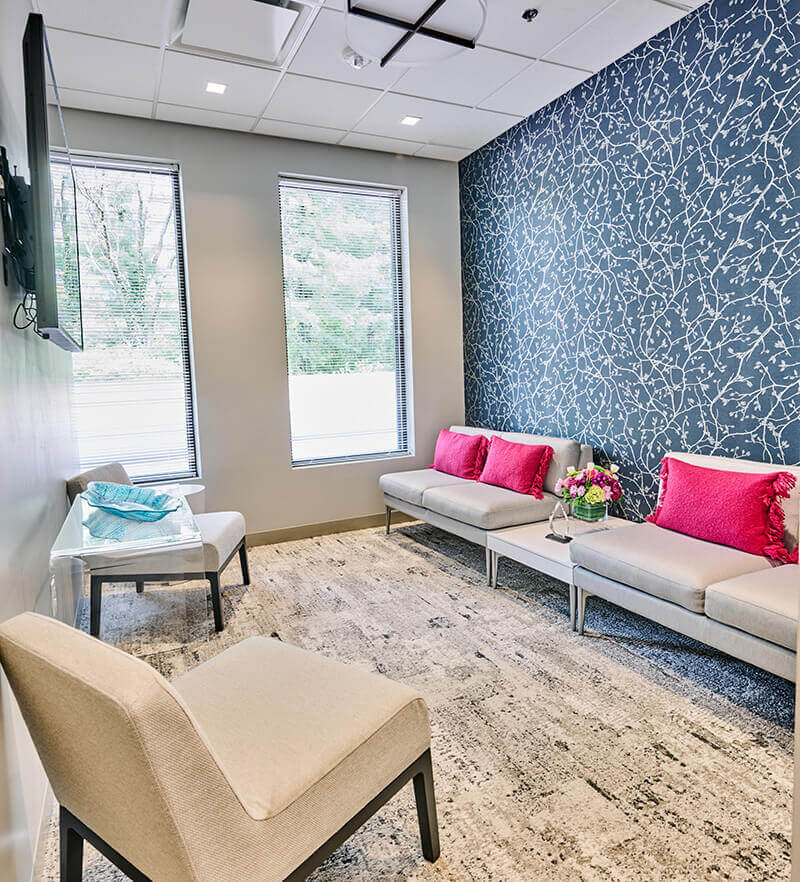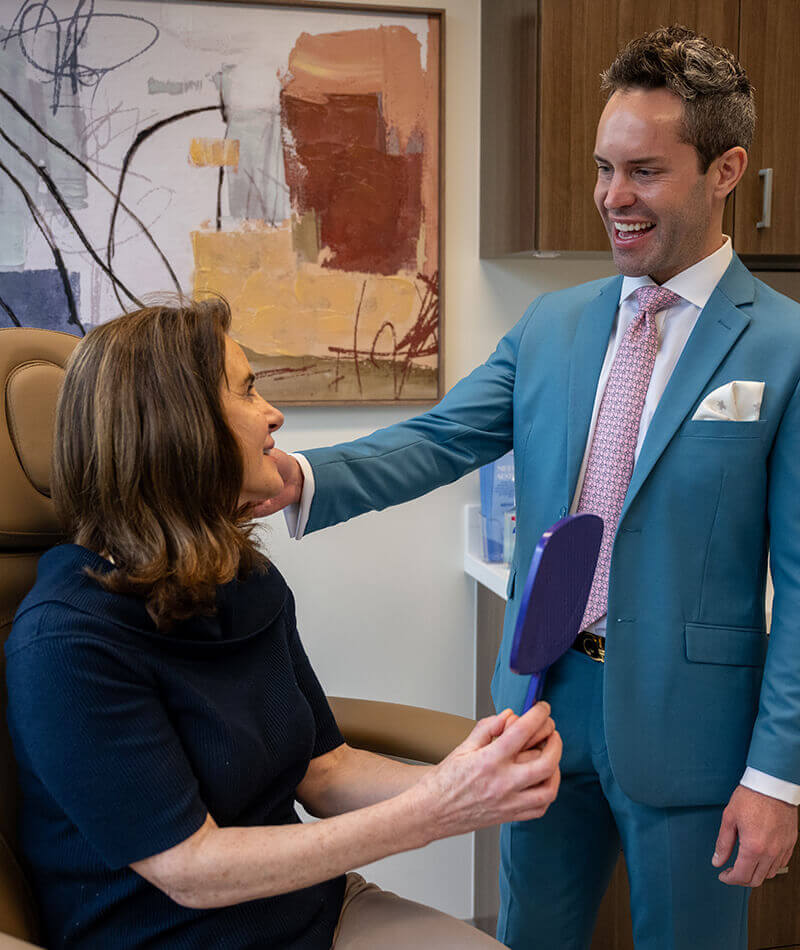If you have decided that cosmetic surgery may be right for you, the next step is choosing your surgeon. When it comes to your physical health, mental wellbeing, and appearance, it is important to ensure you are in safe, capable hands.
Your Consultation
Your cosmetic consultation is always complimentary at Center for Plastic Surgery, and our plastic surgeons work hard to ensure your experience is informative and positive.



But your initial consultation is only one part of the process—before you ever meet with a surgeon and begin planning your surgery, there are a few steps you should consider:
Step One: Making a Decision
The decision to change something about your physical appearance is highly personal and should be made from an informed place. Before moving forward, ask yourself these questions:
1. What do I want to change?
Instead of coming to a consultation with a predetermined procedure in mind, think about your overall aesthetic goals and share these with your doctor. That way you’ll get to hear about all possible solutions—you may be surprised at the number of options!
2. Why do I want to change?
Explore your motivations behind wanting to change your appearance. For the right candidates, making a change to your appearance can boost confidence and help you feel more comfortable in your skin. If your desire to change yourself is stemming from depression, anxiety, or relationship issues, plastic surgery will not solve the problem. It’s important to be emotionally stable and have good mental health before having plastic surgery.
3. How much does this aspect of my appearance bother me?
Consider how often you think about your appearance concerns—do you think about them daily, weekly, rarely? If you find that an issue with your looks is impacting your quality of life or the choices you make day-to-day, making a change can help you live your life to fullest. While surgery is not a substitute for making healthy choices, correcting an issue that gets in the way of your enjoyment of life may be a good solution for you.
4. What are my expectations?
It is important to manage your expectations and have realistic goals. While it is acceptable to look for inspiration from before and after photos, remember that your results will be dependent upon your unique anatomy and the skill of the surgeon performing your procedure.
Step Two: Choosing a Surgeon
Did you know…?
Anyone with a medical license is legally allowed to perform cosmetic surgery in an office-based setting. For example, there are no laws preventing medical doctors from any specialty performing cosmetic surgery. This makes it critical to check for board certification in plastic surgery and more. Following are some key items to check.
Safety
Choosing a knowledgeable, reputable board certified plastic surgeon minimizes your risks and maximizes your chances for successful results. Look for certification by the American Board of Plastic Surgery. Board certified plastic surgeons must have completed medical school and an approved surgical residency of three years, in addition to a plastic surgery residency of at least two to three years. When you choose a board-certified plastic surgeon, you know you are choosing someone who has passed rigorous training and examination.
Operating facility accreditation is equally important to your safety, so be sure to ask about where your procedure will be performed. You will want to make sure your plastic surgeon operates in a surgical facility that is accredited by either the AAAASF, JHACO, Medicare, or AAAHC. This will ensure your procedure is performed somewhere that meets strict standards of safety and hygiene.
Step Three: Preparing for your Consultation
When it comes time for your consultation, it can be hard to remember all of the important questions you’ll want to ask. Be prepared by making a list. To get you started, here’s a sample list of questions we think are important:
- Are you certified by the American Board of Plastic Surgery?
- How often do you perform the procedure I want?
- Can you show me before and after photos of patients with similar anatomy and concerns?
- Where will my procedure be performed?
- Is the operating facility accredited by the AAAASF, JCAHO, Medicare, or AAAHC?
- What type of anesthesia will I receive and is your anesthesiologist board certified?
- What will my recovery involve?
- Will I need any special aftercare?
- What will the all-inclusive cost of my procedure be?
Add any additional questions you may have to the list above, and take them with you when you meet with any potential surgeon.
During your consultation, you should expect to receive substantial information and advice. Your surgeon should offer you a range of options, both surgical and nonsurgical, and work closely with you to help design a treatment plan that will fit your individual needs and goals. If you feel uncomfortable or like the surgeon is pushing you in a direction you don’t like, he or she may not be the best fit for you.
Flying in for surgery? Learn all about planning your visit.

Step Four: Scheduling & Finance
The logistics and practical elements of surgery are important to think about when you are planning plastic surgery.
Time
Make sure your timing is right. You may need to consider the time of year or plan to have your procedure around vacation or holidays to maximize recovery days and minimize your time off work. Plan ahead for your recovery by determining who will support you during your downtime and how you will handle travel, exercise, work, and worst case scenarios.
Money
Determine your payment strategy with these questions:
- Are the fees within your budget?
- Do you plan to save first?
- Would a monthly payment plan make this possible? (If yes: what is an ideal monthly payment? Do you need a co-signer? Do you have a down payment?)
Step Five: Preparing for Surgery
Although this varies by procedure, it’s important to be physically ready for cosmetic surgery. Specific information will be provided by your doctor at your consultation, but there are certain things you can prepare for. If you are a smoker, you will need to plan on putting the pack down at least two weeks before and after your surgery. Being at a healthy, stable weight is important if you are undergoing a body contouring procedure.
It’s also good to plan for a post-surgical ride home and companionship as you recover, in addition to preparing your home for recovery. Ensuring you have healthy food, comfortable clothing, and entertainment material at hand can make a world of difference in your recovery.
Step Six: Getting Started with Center for Plastic Surgery
If you’re located in the Washington, DC or Northern Virginia area and are interested in learning more, contact us today to schedule your personalized, complimentary cosmetic consultation. Our surgeons will work closely with you to discuss your concerns, evaluate your anatomy, and design a surgical plan that best suits your goals.